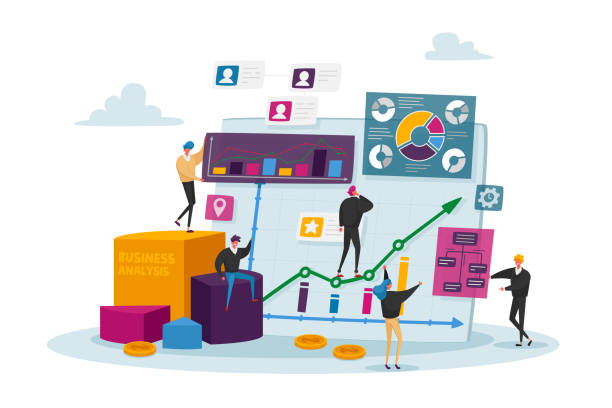Data isn’t just something businesses use in their daily workings. Data is anything and everything that gets passed over the internet. Everything counts as data, from the text messages you send to a friend to the content you make or consume online.
All of us combined generate around 2.5 quintillion bytes of data every single day all around the world. That is 18 zeros after 2.5! Now imagine all this data is being generated, and businesses aren’t able to make anything out of it because of the lack of data analysts on their team.
A data analyst has a vital role to play in an organization. There are plenty of decisions that companies need to make depending on the data that they collect. All the collected data needs to be deciphered and made sense of so that it can be used to make decisions that benefit the business.
Many things are covered under the job description, so a data analyst must be skilled to handle all the responsibilities.
What does a Data Analyst do?
A data analyst analyses all the collected data and tries to find proper solutions to help the organization solve essential problems. They must also present the study as understandable to the management and the company’s stakeholders. A data analyst helps with decisions such as which audience to target, what strategy to use, and what products to build, which can be made extremely easy once you have all the correct data. Other than the customer perspective, data analysts can also help identify the weak points in a business and how an organization can adequately change its direction to better itself.
You will find data analysts in many fields, from technology to medical; every area needs a data analyst to improve its business.
Technical skills required to be a Data Analyst
Now that you understand the job of a data analyst, you must understand what technical skills they need to acquire to be a good data analyst.
The skills needed to become a Data Analyst are extensive. Here are the top technical skills a data analyst needs to master:
1. Data Visualization
Having data presented in graphs and charts is much easier to understand than data presented in spreadsheets. So a data analyst should be able to show all the data visually in graphs and charts so everyone in the organization can understand it better.
2. Data Cleaning
Tech writer Ajay Sarangam says, “Most data scientists spend around 80 percent of their time cleaning data.” It might seem excessive, but only a data analyst knows the importance of a clean dataset. It could make a huge difference, from generating accurate results to forming the wrong patterns and conclusions.
3. SQL
SQL, also known as Structured Query Language, is one language a data analyst must be fluent in. Unfortunately, most beginners ignore SQL thinking it’s an old language and why waste time learning it when you can just learn the new and happening languages like Python or R.. Still, most people don’t realize that SQL is the language that will get you the job in data. So don’t so the mistake of ignoring SQL.
4. Microsoft Excel
While learning all the new and fancy technology, it is crucial not to ignore the basics. For example, Microsoft Excel might seem like the easiest thing to learn on this list, so you might become overconfident and skip it. But learning advanced excel will help you with data more than you think.
5. Statistical Knowledge
When you have your stats right, you know there aren’t any mistakes in the analysis on your part. Statistics and probability are two areas a data analyst must master. Once you understand the statistics, it is easy to avoid logical errors in data. Even basic statistical knowledge will allow you to excel in the data field.
Soft skills needed for Data Analyst
Other than technical skills that are very specific to the role of a data analyst, there are also certain soft skills that a data analyst must possess. Here’s a list of soft skills that a data analyst is expected to have:
1. Good Communication
Data analysts must communicate with several organizational professionals while presenting the data. So to communicate effectively with people from management and other data analysts, they need to have good communication skills.
2. Problem Solving
One of the key reasons all the data needs to be analyzed is that a good solution can be found to the most pressing problem in the organization. So just presenting the management with information isn’t enough; you also need to give them solutions.
3. Critical Thinking
For an outsider, the job of a data analyst is looking at numbers and making sense of them. But for a data analyst, these numbers are where the solution lies. A good data analyst can look beyond the numbers and use their critical thinking abilities to find the best solution for a problem.
4. Research
When you deal with data and information, your research skills must be top-notch. You don’t get all the data on a silver platter. You have to research and decide which information is the most relevant. Unless your research skills are good, you won’t know what data to analyze.
In conclusion
Data analysts work with different kinds of data and need to be able to code, analyze large quantities of data, problem solve, and understand how customer behavior changes over time. They are needed in so many fields today that anyone who wants to choose data analysis as a career has a good future ahead. However, being a data analyst is much more than just gathering and analyzing data. There are so many steps further required that a data analyst must be skilled enough to do the job smoothly.
So start with the skills mentioned above, and you will be on the right track to becoming a good and competent data analyst. You will better understand the job, and recruiters will consider you among others when you have the abovementioned skills.






